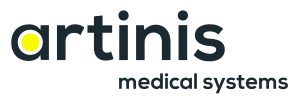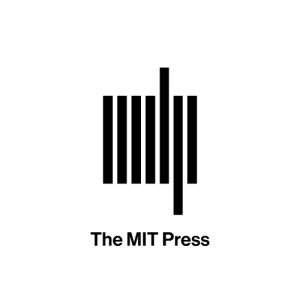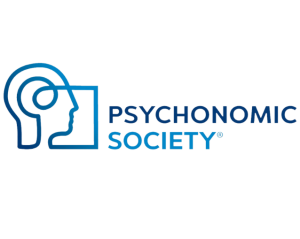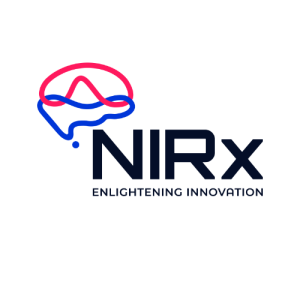Workshops
The CogSci 2025 Program includes a series of half day workshops, scheduled to take place on Wednesday, July 30. These pre-conference sessions are optional to attend and there is a $40 registration fee for each workshop. When you register for CogSci 2025, you will have the option to select which workshop you would like to attend.
To find out more about the workshops, please review the details below:
Half Day Workshops
Wednesday July 30
08:30 AM – 12:00 PM
Workshop 1: Putting it together: Interactions between domains of cognition
Organisers and Presenters: Shari Liu: Johns Hopkins University; Joseph Outa: Johns Hopkins University
Abstract
One of the oldest and deepest questions across the cognitive sciences concerns the architecture of the mind (Fodor, 1983). Which cognitive capacities are supported by domain-general computations that apply to a broad set of inputs, and which are supported by domain-specific computations, that are specialized for a particular mental function? This question has motivated a broad set of research programs, ranging from the evolution and development of human knowledge (Tomasello, Melis, Tennie, Wyman, & Herrmann, 2012), to the specialization of neural functions (Kanwisher, 2010), to building machines to think and learn in the same ways that we can (Lake, Ullman, Tenenbaum, & Gershman, 2017).
Workshop 2: Reasoning Across Minds and Machines
Organisers and Presenters: Hanbo Xie: Georgia Institute of Technology; Jian-Qiao Zhu: Princeton University; Hua-Dong Xiong: Georgia Institute of Technology; Robert Wilson: Georgia Tech; Tom Griffiths: Princeton University
Abstract
Reasoning is one of the hallmarks of both natural and artificial intelligence. Understanding how reasoning operates in the human mind is crucial in cognitive science. Despite a long history of research on human reasoning in cognitive science—ranging from heuristics (Tversky & Kahneman, 1974) to mental models (Johnson-Laird, 1983), and from Bayesian modeling (Oaksford & Chater, 2007; Griffiths, Chater, & Tenenbaum, 2024) to neuroscience (Goel & Dolan, 2003)—little is known about how humans reason so flexibly in real life and how reasoning contributes to high-level cognitive functions including planning, social interaction, complex problem-solving, and open-ended mental exploration. Previous studies face challenges that hinder a deeper understanding of reasoning, including the difficulty of designing well-balanced experimental paradigms that maintain both control and ecological validity, efficient data collection and analysis beyond pure behavioral measures (e.g., Think-Aloud text data (Simon & Ericsson, 1984)), and understanding complex interactions between reasoning and other high-level cognitive functions, such as memory, theory of mind, and language.
Workshop 3: Information Theory and Cognitive Science
Organisers & Presenters: Noga Zaslavsky: NYU; Thomas A Langlois: MIT; Nathaniel Imel: New York University; Clara Meister: ETH Zürich; Eleonora Gualdoni: Universitat Pompeu Fabra; Daniel Polani: University of Hertfordshire
Abstract
This workshop focuses on information theory and cognition. The goal is to create a multidisciplinary space for discussing the most recent advances at the intersection of information theory and cognitive science and to explore how this emerging research area can help the field advance toward a more comprehensive and principled mathematical theory of human cognition.
Workshop 4: Minds in the Making: Cognitive Science and Design Thinking
Organisers and Presenters: Junyi Chu: Stanford University; Arnav Verma: Stanford University; Guy Davidson: New York University; Robbie Fraser: Stanford University; Judith E. Fan: Stanford University
Abstract
All around us are traces of human design, from color-coded subway maps that facilitate navigation to furniture that balances form and function. The human capacity for creation has long fascinated cognitive scientists. Early studies of innovation highlighted the role of problem-solving, elucidating the roles of search and heuristics (Simon, 1996; Newell, 1972). Research on object perception and tool use enhanced our understanding of how humans interact with and manipulate their environment (Gibson, 1977; Norman, 1999). Subsequently, research in the visual and spatial domains uncovered key abstractions supporting reasoning, communication, and expression through visual forms, such as mental models, diagrams, and spatial analogies (Hegarty, 2011; Tversky, 2010; Goel, 1995).
Workshop 5: Behavioral Network Science
Organisers and Presenters: Thomas Hills: University of Warwick
Abstract
Structure matters in cognitive science. Whether we are asking about memory retrieval, semantic representations, categorization, language acquisition, learning from complex information, aging, or creativity, cognitive scientists often find themselves forced to reckon with structure. Network science offers a quantitative approach for doing this by allowing us to ask questions about the relationships between various entities at scales ranging from dyads, to communities, to entire systems. In this case, the entities are the nodes in the network and the relationships are the edges between them. Exploring how this plays out in actual practice is incredibly varied, aesthetically and intellectually beautiful, and deeply rewarding, allowing us to develop and test hypotheses about cognition that are not otherwise possible. As a metric ruler measures length, allowing us to compare human height with the Burj Khalifa, network science measures structure, allowing us to compare the structure of our environments with the structure of our cognitive representations, how those representations change across the lifespan, and how different processes interacting with those structures generate behavior.
Workshop 6: Succeeding in the Start-up Ecosystem
Organisers and Presenters:Linus Liang: Kyber Knight Capital; Robert Glushko: University of California, Berkeley; Douglas Bemis: Syntracts.com; Sam Ramji: Sailplane.Ai; Andreas Stuhlmüller: Ought Inc.
Abstract
This workshop aims to guide cognitive science PhD students on starting a company within the start-up ecosystem., with an emphasis on how to use venture capital (VC). It will cover essential concepts, stages, decision points, and skills needed to improve chances for success. The workshop will also compare VC funding phases with those in academic research to make the concepts and processes more accessible.
This workshop will begin by helping students calibrate their motivations and timelines for creating a startup company or joining one. After a review of the typical startup lifecycle by a venture capitalist, three startup founders will explain their career trajectories and critical decision points. They will then introduce important decisions about product, market, software, and funding strategies. Students will then participate in breakout sessions in one of these four areas. After the breakout sessions, the workshop will conclude with open discussion with the presenters.
Workshop 7: Meta-reasoning: Deciding which game to play, which problem to solve, and when to quit
Organisers and Presenters: Lionel Wong: Stanford University; Tracey Mills: MIT; Ionatan Kuperwajs: Princeton University; Katherine M Collins: University of Cambridge; Tom Griffiths: Princeton University
Abstract
People are general purpose problem solvers. We obtain food and shelter, manage companies, solve moral dilemmas, spend years toiling away at thorny math problems, and even adopt arbitrary problems through puzzles and games. The cognitive flexibility which allows us to represent and reason about such a wide range of problems, often referenced as a distinguishing feature of human intelligence (Tomasello, 2022), presents us with an especially ubiquitous one: deciding which problem to solve. The meta-level problem of what problem to choose exists, in part, because people have limited problem solving resources (Griffiths et al., 2020). While this challenge has been examined through various lenses across cognitive science, implicit in many of these perspectives is the notion of bounded rationality. Given our limited time and energy, how do we decide which problems are worthwhile and when we should quit to pursue something new?
Workshop 8: Building computational models of social cognition in memo
Organisers and Presenters: Kartik Chandra: MIT; Sean Dae Houlihan: Dartmouth College; Max Kleiman-Weiner: University of Washington
Abstract
One of the most influential computational paradigms in modern cognitive science is the Bayesian modeling of social cognition. This paradigm models people’s intuitions about other agents in terms of recursive probabilistic reasoning: agents are treated as approximately-rational decision-makers, who make Bayesian inferences about other agents’ mental states from their observable behavior. Computational models designed in this tradition have been used in seminal work on theory-of-mind, language and communication, emotion understanding, and many other key areas of interest in cognitive science.
Workshop 9: All you ever wanted to ask about Dynamic Field Theory
Organisers and Presenters: Gregor Schoener: Ruhr-Universitat Bochum; Yulia Sandamirskaya: ZHAW; Aaron Buss: University of Tennessee; Yulia Sandamirskaya: ZHAW; Aaron Buss: University of Tennessee
Abstract
A neural process theory of cognition is one of the central goals l of cognitive science. Connectionism was developed in pursuit of that goal leading to a range of proposed frameworks such as LISA and DORA \cite{DoumasEtAl2022}, SPAUN \cite{StewartEliasmith2012} and many others \cite{KotserubaTsotso2020}. The rise of neural AI reframes the question of how neural accounts may reach higher cognition \cite{SmolenskyEtAl2022,OReillyEtAl2022}.
But what is meant by neural process theory? Which neural principles would form the basis for such a theory? And what is it a theory of? What properties of cognition must such a theory address?
Dynamic Field Theory (DFT) gives specific answers to these questions, postulating that the dynamics of neural populations are the level of neural processing that most closely reflects the laws of cognition. It emphasizes the emergence of cognition from the sensory-motor domain, so that a theory of cognition must address both acting and thinking.
Thank you to our Sponsors and Exhibitors!
![]()
The Cognitive Science Society is pleased to announce the establishment of the CogSci Grove which aims to mobilise cognitive scientists to offset carbon emissions associated with their professional activities.









